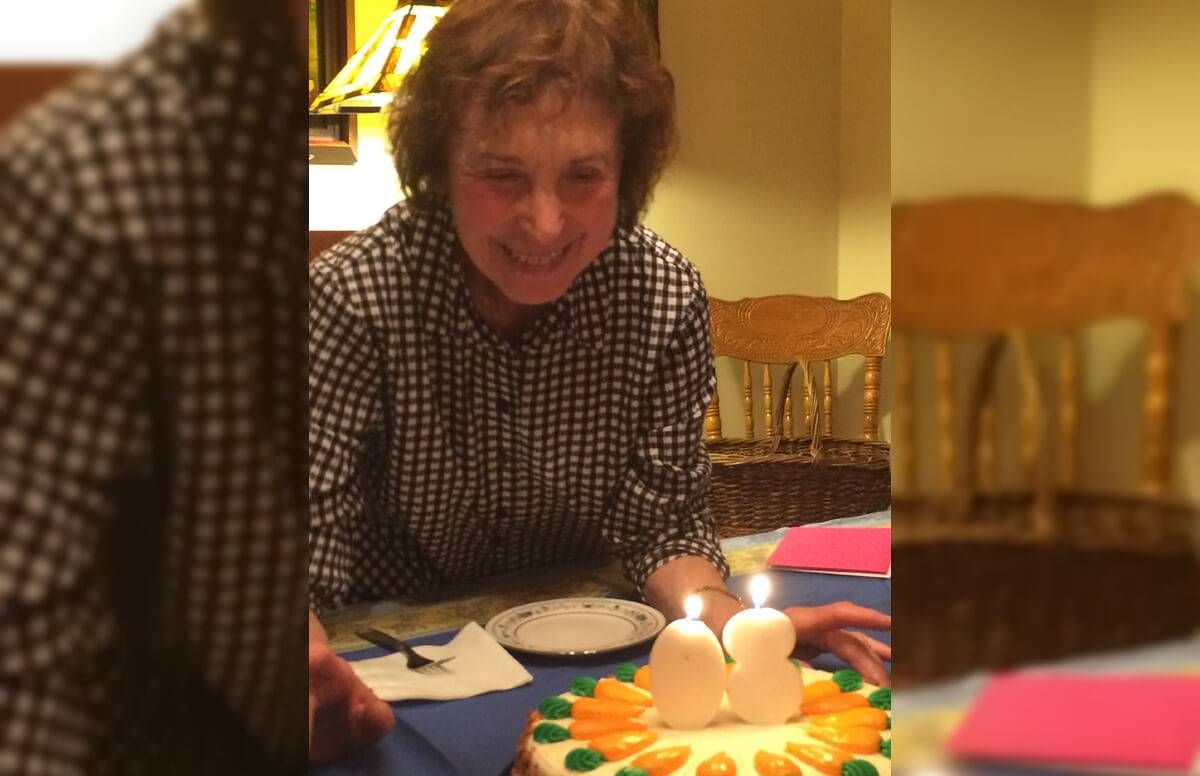My Mother's Alzheimer's and What I Hope for My Research
As Mother’s Day nears, an epidemiologist urges Americans to join clinical studies
Long before I knew how to read my report card, I knew that I loved learning.

I wasn’t the kid with the very highest grades in my class, but I did not struggle and truly enjoyed myself. By the time I earned my doctoral degree in epidemiology at 26, I had discovered that I could think deeply about the research study results I generated and often with remarkable clarity. For the gift of my brain, I am filled with gratitude to my strange and oddly wonderful family.
Formal and Not-So-Formal Education
My paternal grandmother Ethel lived to be 102. She has been the angel at my right all of my life and she is my inspiration. While she did not continue her education after high school, she embodied a deep wisdom about human nature. She had an open heart and cared deeply about our family, each and every one of us, no matter our flaws. We all felt the love.
Her ability to connect with others in a respectful and genuine way drew people to her like a magnet. She lived independently with intact cognition and was able to walk about her living environment until her admission to hospice a week before she died. My grandmother had a great brain that served her well during a long and loving life.
My mother, Eve, is now 84. I was in the fourth grade when she earned her Ph.D. in psychology — a rare accomplishment for women in the 1960s. Her 35-year career as a clinical psychologist was devoted to helping veterans — especially of the World War II, Korean and Vietnam eras — adjust to their lives at home. She dearly loved that work and had a hard time leaving it.
The Ravages of Alzheimer’s
My mother was diagnosed with early-stage Alzheimer’s disease last year. Some days, she can’t remember the number of her apartment or how to get to the dining room. She lives in a beautiful independent living high rise on the Hudson River outside of New York City, but occasionally says she lives in a camper. She struggles to order dinner from the dining room menu and has been exiled from the card games because she can’t keep up.
So far, my mother still remembers her daughters, but my conversations with her are short. She seems delighted to hear my voice, but can’t think of what to say to me when I ask her what's new. Her diminishment, little by little but speedily these last few years, has been striking and heartbreaking. My mother has a great brain that served her well for over 80 years, but it hasn’t lasted her to the end.
These are the brains of the foremothers in my family, and the origins of my own brainpower. As Mother's Day approaches, I am grateful, but can’t help but wonder: Will my brain be resilient like my grandmother’s or will it wither like my mother’s?
A ‘Major Women’s Issue’
Like my mother, an estimated 5.5 million Americans aged 65 and older have Alzheimer’s disease. Driven by the expansion of the older population, and most especially the oldest old, this number is projected to climb to 13.8 million by 2050.
In a nationally representative U.S. study called the Health and Retirement Study, 72 percent of people diagnosed with Alzheimer’s disease were women. Of the 15 million people who provide unpaid care to people with Alzheimer’s disease, two-thirds are women. Clearly, Alzheimer’s disease is a major women’s issue.
I devote my own career to research on healthy aging, especially in older women. This includes studies to identify effective lifestyle behaviors and treatments to keep us alive, walking and with our wits about us until the end, like my grandmother.
Despite decades of research, Alzheimer’s disease remains incurable, progressive and 100 percent fatal. There are no medicines or lifestyle changes that have been proven to stop, or even slow down, Alzheimer’s disease. Over the last 20 years, we have learned much more about what doesn’t work than what does. Although we would prefer earth-shattering breakthroughs, these studies inform our future directions and knowledge of the disease process greatly.
Clinical Trials Are Essential
As an “aging epidemiologist,” I know that the stakes are just too high to give up. Because brain aging is such a critical component of healthy aging, I support many trials that we are conducting at the University of California San Diego in our Alzheimer’s Disease Cooperative Study group. The only way we will find ways to treat and prevent Alzheimer’s disease is by conducting clinical trials that test whether lifestyle (diet, exercise, memory training) and drug interventions actually work at different stages of the disease process.
For example, in our EXERT study, we are comparing two forms of exercise, four times a week, with a personal trainer and terrific support over an 18-month study period to see if there is a difference in progression of memory problems or disease markers in the brain. The clinical trial is ongoing in 12 cities across the U.S.
We need people over 65 with mild memory problems who are not currently exercising regularly to join. You can find more information at www.exertstudy.org.
We can’t choose the brains we inherit from our foremothers and forefathers. Our own trajectories will be revealed in their own time. What we can do is join together in our communities to create a different future than the one with 13.8 million affected Americans.
Alzheimer’s disease will be understood and eventually conquered one step at a time. Join the fight against Alzheimer’s. Join a study. You can search for clinical trials here.

